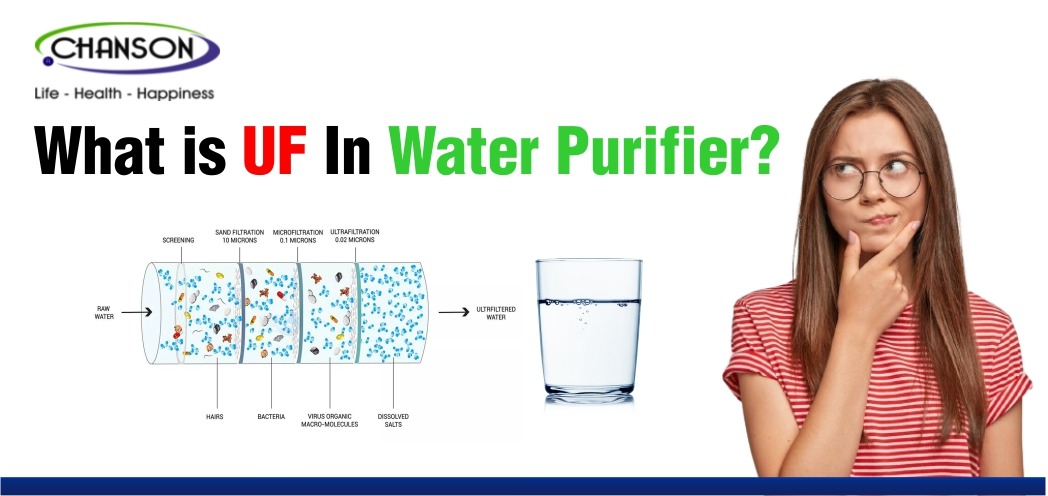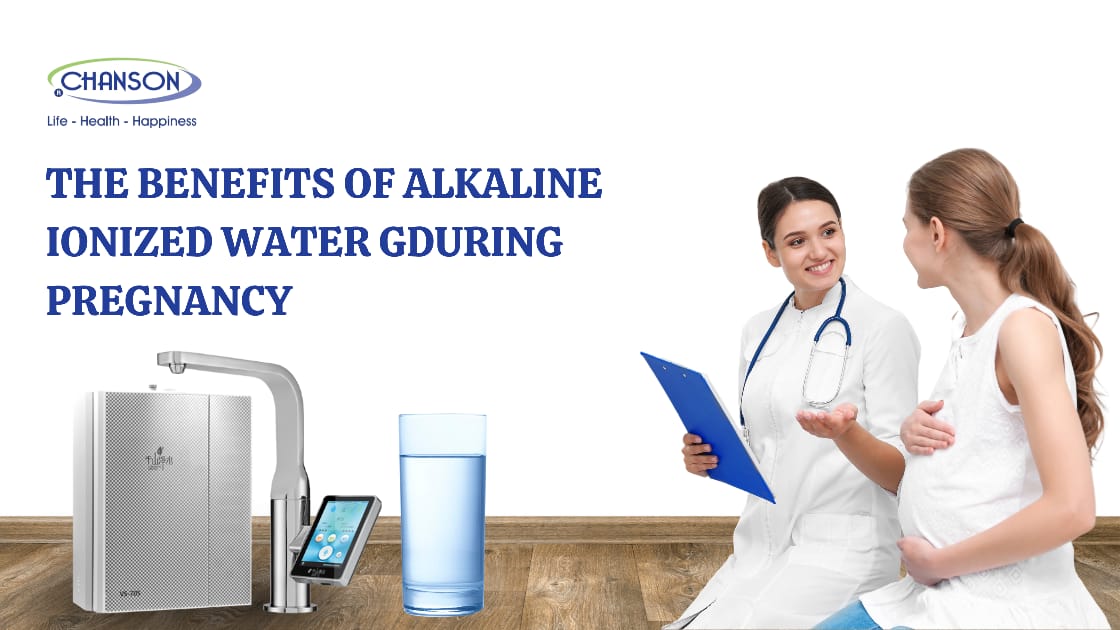What is UF In Water Purifier: A Comprehensive Guide
Water purifiers are essential for ensuring safe drinking water by removing impurities. Ultrafiltration (UF) is a key technology in this process, using a membrane to filter out particles as small as 0.01 microns. Unlike Reverse Osmosis (RO) which removes minerals, UF retains them, providing healthier water.
UF is effective against bacteria, viruses, and cysts, making it ideal for areas with unsafe water sources. Regular maintenance is crucial to ensure optimal performance. Overall, UF in water purifiers offers a reliable and eco-friendly solution for clean, safe drinking water. This article aims to provide a detail of What Is UF in Water Purifier?
What is UF In Water Purifier?
Ultrafiltration (UF) is a water purification technology used in water purifiers to remove impurities and contaminants from water. It works by using a semi-permeable membrane to filter out particles as small as 0.01 microns, including bacteria, viruses, and cysts, making the water safe for consumption. Unlike Reverse Osmosis (RO), which removes minerals along with impurities, UF retains essential minerals in the water, ensuring a healthier water composition. UF is particularly effective in areas with unsafe water sources, as it can remove harmful microorganisms. Regular maintenance is important to ensure the optimal performance of UF filters. Overall, UF in water purifiers provides a reliable and eco-friendly solution for clean and safe drinking water.
- Principle of Operation: UF uses a physical barrier (membrane) to separate particles from water based on size, while RO uses pressure to force water through a semipermeable membrane to remove impurities. UV, on the other hand, uses ultraviolet light to disinfect water by inactivating microorganisms.
- Particle Size Removal: UF can remove particles as small as 0.01 microns, including bacteria, viruses, and cysts. RO, however, can remove even smaller particles, down to 0.0001 microns, including dissolved salts and minerals. UV does not remove particles but inactivates microorganisms.
- Maintenance: UF systems generally require less maintenance compared to RO systems, which often require periodic filter changes and maintenance to prevent clogging. UV systems require periodic bulb replacement and cleaning of the UV chamber.
- Wastage: RO systems typically waste water during the purification process, with a ratio of purified to waste water ranging from 1:2 to 1:3. UF and UV systems do not produce wastewater during the purification process.
- Mineral Retention: UF retains essential minerals in water, unlike RO, which removes minerals along with impurities. UV does not alter the mineral composition of water.
- Suitability: UF is suitable for areas with unsafe water sources, as it can effectively remove harmful microorganisms. RO is suitable for areas with high Total Dissolved Solids (TDS) levels and poor water quality. UV is suitable for water with low levels of contamination and as a final polishing step in purification.
Advantages of UF in Water Purifiers
Ultrafiltration (UF) in water purifiers offers several advantages:
- Removal of Microorganisms: UF is highly effective in removing bacteria, viruses, and cysts from water, making it safe for consumption. The membrane used in UF has tiny pores that can filter out these microorganisms.
- Retention of Essential Minerals: Unlike Reverse Osmosis (RO), which removes essential minerals along with impurities, UF retains these minerals in the water. This ensures that the water remains healthy and nutritious.
- Environmentally Friendly: UF does not require electricity or chemicals for the purification process, making it an environmentally friendly option. It also does not produce wastewater, unlike RO, which wastes a significant amount of water during the purification process.
- Suitability for Unsafe Water Sources: UF is particularly useful in areas where the water source is microbiologically unsafe. It can effectively remove harmful microorganisms, providing safe drinking water.
- No Alteration of Water Composition: UF does not alter the composition of water, except for removing impurities. This means that the water retains its natural taste and properties.
- Low Maintenance: UF systems generally require less maintenance compared to RO systems. Regular cleaning of the membrane is necessary, but the frequency is lower than that of RO systems.
- Cost-Effective: UF systems are often more cost-effective than RO systems, both in terms of initial investment and ongoing maintenance costs
Overall, UF in water purifiers offers a reliable and efficient way to purify water, making it safe for consumption while retaining essential minerals and being environmentally friendly.
Limitations of UF
While Ultrafiltration (UF) is an effective water purification method, it does have some limitations:
- Does Not Remove Dissolved Impurities: UF is not effective in removing dissolved impurities such as salts and minerals from water. Therefore, it is recommended to use UF in conjunction with other purification methods if these impurities are a concern.
- Pre-filtration Required in Areas with High Turbidity: In areas with high turbidity (cloudiness caused by suspended particles), pre-filtration may be necessary to prevent clogging of the UF membrane. This can add complexity and cost to the purification system.
- Limited Size Exclusion: While UF can filter out particles as small as 0.01 microns, it may not be effective against all types of contaminants. Some viruses and dissolved organic compounds may pass through the UF membrane, although the risk is generally low.
- Maintenance Requirements: While UF systems generally require less maintenance than Reverse Osmosis (RO) systems, regular maintenance is still necessary to ensure optimal performance. This includes cleaning the membrane and replacing filters as needed.
- Limited Effectiveness Against Chemical Contaminants: UF is primarily effective against physical contaminants such as bacteria, viruses, and cysts. It may not be as effective against chemical contaminants, which may require additional treatment methods.
- Initial Cost: While UF systems are generally more cost-effective than RO systems, they still involve an initial investment. The cost of the UF membrane and other components can vary depending on the system's size and complexity
Despite these limitations, UF remains a valuable water purification method, particularly in areas where microbiological contamination is a primary concern. By understanding these limitations and implementing proper maintenance and pre-filtration measures, the effectiveness of UF systems can be maximized.
Maintenance and Cleaning of UF Filters
Proper maintenance and cleaning of Ultrafiltration (UF) filters are essential to ensure their optimal performance and longevity. Here are some tips for maintaining and cleaning UF filters:
- Regular Cleaning: UF filters should be cleaned regularly to prevent the buildup of contaminants and to maintain their effectiveness. The frequency of cleaning will depend on the quality of the water being filtered and the manufacturer's recommendations
- Use of Cleaning Solutions: Use a suitable cleaning solution recommended by the manufacturer to clean the UF filters. Follow the manufacturer's instructions carefully to ensure proper cleaning and avoid damaging the filters
- Backwashing: Backwashing is a common cleaning method for UF filters. It involves reversing the flow of water through the filter to flush out accumulated particles and contaminants. This helps to restore the filter's flow rate and efficiency
- Chemical Cleaning: In some cases, chemical cleaning may be necessary to remove stubborn deposits and contaminants from UF filters. Use only the chemicals recommended by the manufacturer and follow the instructions carefully to avoid damaging the filters
- Replacement of Filters: UF filters have a limited lifespan and will eventually need to be replaced. Regularly check the condition of the filters and replace them as recommended by the manufacturer to maintain optimal performance
- Preventative Maintenance: In addition to regular cleaning, it's important to perform routine maintenance checks on the UF system. This includes checking for leaks, monitoring the flow rate, and ensuring that all components are functioning properly
- Professional Maintenance: For complex UF systems or if you're unsure about the maintenance procedures, it's advisable to seek professional maintenance services. Professional technicians can ensure that the filters are properly cleaned and maintained, maximizing their lifespan and performance
By following these maintenance and cleaning tips, you can ensure that your UF filters perform efficiently and provide you with clean, safe drinking water for years to come.
UF technology in water purifiers offers an effective and environmentally friendly way to ensure safe drinking water. Its ability to remove harmful microorganisms while retaining essential minerals makes it a popular choice for households and industries alike. Consider UF technology for your water purification needs and enjoy clean and safe drinking water for you and your family.
Experience the difference of ionized water in your daily life! Invest in a water ionizer today and enjoy the benefits of drinking alkaline water, antioxidant-rich water. Say goodbye to bottled water and hello to a sustainable, healthy hydration solution. Take the first step towards a healthier lifestyle and discover the power of ionized water. Order your water ionizer now and start enjoying the benefits!
Call to Action - Visit Our Water Ionizers https://chansonqualitywater.com/water-ionizer
Latest Blog
-
03 Jun 2025
The Benefits of Alkaline Ionized Water During Pregnancy -
03 Jun 2025
Dr Softener, the Best Water Softener -
27 Apr 2025
Alkaline water ionizer Your Insurance to Good Health and Longer Life -
19 Feb 2025
Prevent Bone Aches in Cold Weather with Alkaline Water: Essential Tips -
03 Feb 2025
Looking for Winter Wellness? Discover How Alkaline Water Strengthens Your Bones -
03 Feb 2025
The Science Behind Ionized Water and Reduced Inflammation -
22 Dec 2024
Winter-Safe Hydration: Why Alkaline Water Is the Best Choice

All Rights Reserved. © 2019-2026, Centrepoint Lifestyle Products Pvt Ltd.









